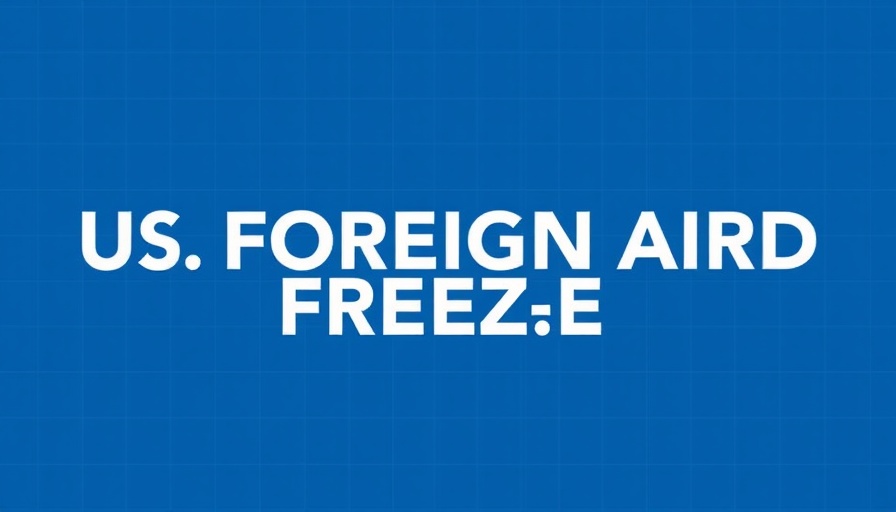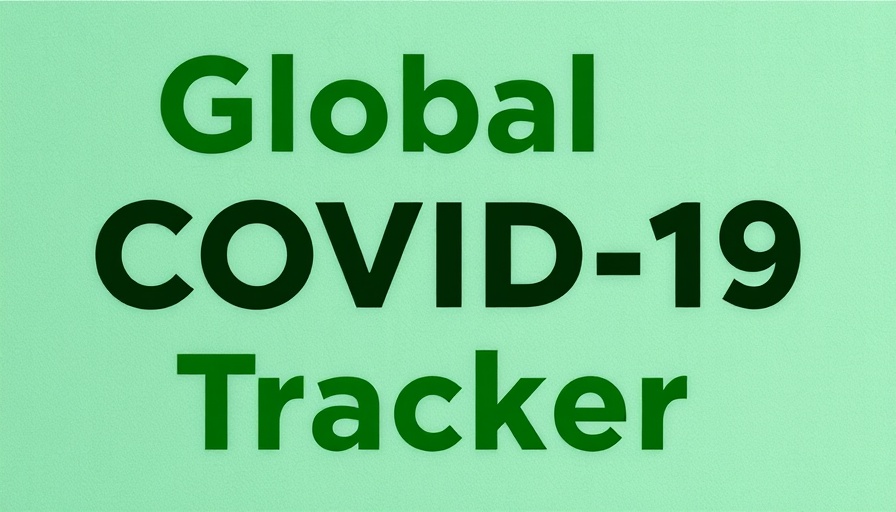
Understanding the Impact of US Foreign Aid Cuts on Global Health
The Trump administration's decision to freeze foreign aid has sent shockwaves through international health initiatives, particularly in low- and middle-income countries heavily reliant on American support. With the cancellation of critical funding, services vital for combating diseases like HIV, tuberculosis, and malaria face unprecedented disruptions. Over the years, the U.S. has been the largest donor to global health, covering nearly 30% of health assistance worldwide. This abrupt cut threatens millions who depend on these health services, risking the resurgence of preventable diseases.
The Ripple Effect on Vulnerable Nations
The data shows a stark reality: many countries, especially those classified as low-income, rely on the U.S. for essential health support. With almost two-thirds of bilateral assistance for HIV coming from the U.S., countries like Zambia and Eswatini face significant risks of losing treatment access and health improvements achieved over the past decades. As other donors have not stepped up to fill this gap, many nations may struggle to maintain essential health services, which raises alarms for future outbreaks of neglected diseases.
Who Will Fill the Funding Void?
As the U.S. scales back aid, the international community faces the daunting question: Who will step in to support global health initiatives? The Centers for Global Development highlight that other nations and multilateral organizations may not have the capacity to cover the losses left by American cuts. Without a robust global response, the health outcomes in these vulnerable countries could deteriorate rapidly, emphasizing the need for collective action.
Grassroots Support: A Beacon of Hope
Against this backdrop of uncertainty, grassroots initiatives and NGOs are working tirelessly to fill the gaps left by governmental funding cuts. These local organizations are proving to be vital lifelines, providing essential health services, education, and support. While they may not replace the extensive resources previously supplied by U.S. aid, their dedication reflects the resilient spirit of communities coming together in the face of adversity.
The Human Cost of Policy Decisions
Ultimately, the freeze of foreign aid is more than just a political maneuver; it has real implications for human lives. Programs providing HIV testing and treatment, maternal health services, and vaccines have already begun to feel the strain. Individuals and communities are facing losing essential care during an already challenging period marked by the remnants of the COVID-19 pandemic. This reality calls for renewed attention and advocacy from citizens everywhere to urge decision-makers to reconsider such drastic measures that affect global health.
Conclusion: Your Voice Matters
The impact of the U.S. foreign aid freeze is a pressing issue that transcends borders, making it crucial for all of us—insured or uninsured—to act. Speak up for global health initiatives, support local grassroots organizations, and make your voice heard by advocating for compassionate policies that prioritize health for all.
 Add Row
Add Row  Add
Add 




Write A Comment